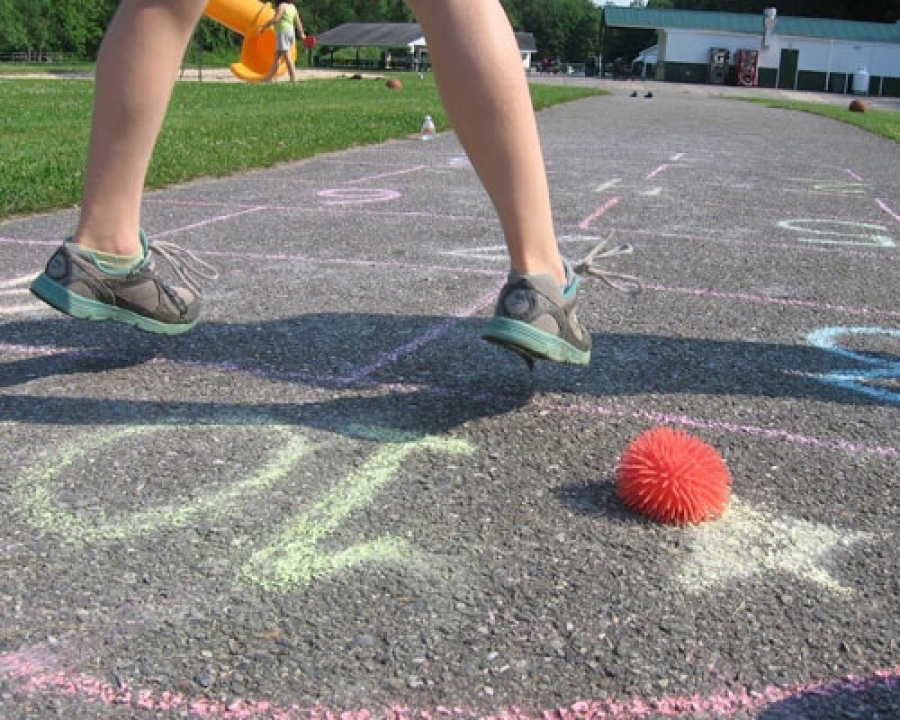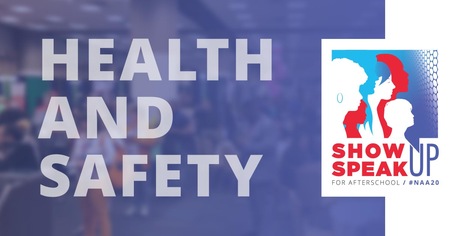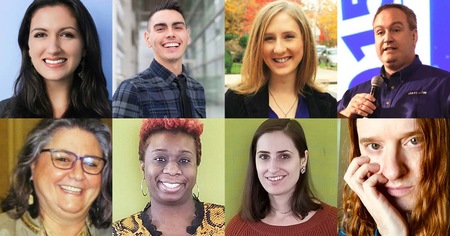One of my presentations, DIY Projects to Help Kids Move More, was featured and I've enjoyed connecting with participants online in very active discussion boards. One attendee I met was Jessica Dickinson, Afterschool Director for Union Vale Parks & Recreation, who graciously agreed to tell her story of healthy out-of-school time.
Why do you believe it is important to create healthy out-of-school environments?
Healthy out-of-school environments are crucial for stability in an unstable world. Family dynamics and schedules are ever-changing; health may rise or fall, and traditional school settings may be challenging and overwhelming. A healthy out-of-school environment should be a haven that is safe, active, fun and welcoming. It should be a place that kids and parents can count on for stability and a smile. Out-of-school programs should provide many opportunities to diversify experiences so that each child can walk away knowing that there is something for them to come back to that they've enjoyed.
How has your organization been successful in encouraging staff to role model healthy behaviors?
Healthy behaviors, both physical and mental, are modeled in everyday practice at our site. Children are constantly encouraged with a smile to enjoy each present moment and find a positive slice out of each day. By playing with our participants daily, staff show each child that it's okay to miss a goal or drop a throw. We each have our strengths and weaknesses. Helping others by using our strengths and having an open mind to accept help with our weaknesses is always a developing skill, even as adults. "Play" is an important component of staying physically and mentally healthy, no matter how old you are.
Family engagement is a challenge for many out-of-school programs. What tips do you have for building and maintaining support with families, parents and siblings of program participants?
Greeting everyone as they come to pick up their children is so important. I like to speak with everyone to send them off with a smile each evening. Nights are a challenge for working families. If I can make sure parents and caregivers know I'm here for their child and care, their minds can be set at ease a bit more when they go into the rest of their routine for the evening.
What tools do you use to communicate with families and other members of the community?
I have been e-mailing parents a lot, which seems to work great and keep everyone on the same page. Our program utilizes a drop-in component to attendance, so I might not see the exact same students from day to day. E-mailing the whole group at the same time helps tremendously.
What are your ideas for balancing fun enrichment activities with homework and other requirements?
We've called it "Homework Club" which sounds more special, for one. When the kids arrive, sometimes they do not come with homework (depending on grade and age-level). I have found that instead of sticking everyone in the same room, waiting until everyone is ready to move on to the next activity, we strategically set up the flow of the space and set-up staff in a more diversified way. Children filter into our program from the bus, they are led into a quiet space where they can choose "Homework Club" with a staff member or continue to the next zone. The next zone is structured with active games/free play with a staff member. When most children are done with "Homework Club," we join forces with the main activity for the day on our after-school calendar. Creating a natural-feeling flow that works for your program is key, along with making homework seem fun and take pride in each student when they have finished their responsibilities.
Celebrating and documenting success is important for any program to be sustainable. What is one way you celebrate the achievements and contributions of staff members, volunteers and youth leaders?
We love giving shout-outs on our Facebook page for the whole community to see! We also post some cool videos of the program in action on our Facebook page.
Last question, just for fun, what's your favorite healthy snack and physical activity?
My favorite healthy snack is a fruit smoothie and I love showing our middle-schoolers that I can still give them a run for their money on the soccer field!
Can't you just feel the enthusiasm that Jessica brings to her work? I appreciate her dedication to ensuring everyone at her recreation site is having fun and experiencing news things on a daily basis. As we work to create healthy afterschool environments, setting the tone that staff care and are willing to meet families where they are is so essential. Thanks for your amazing work, Jessica, and for sharing your inspiring story!
Ready to share your story? E-mail me. Ready to network with professionals like Jessica? Register for NAA's 2016 Convention in Orlando this spring.
Written by Daniel W. Hatcher, National Healthy Out-of-School Time Advisor, Alliance for a Healthier Generation. Click here to read more from the Alliance for a Healthier Generation blog.
Photo courtesy of Jessica Dickinson/Union Vale Parks & Recreation.




